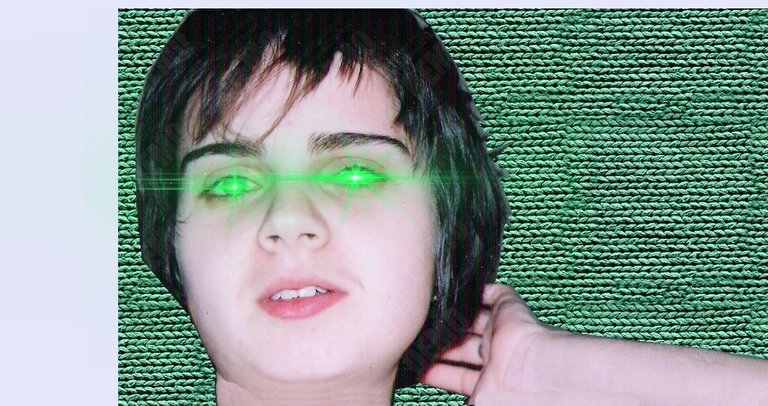How Decision-Making and Brain Function and Simple Words For Wellbeing
Hi.
In this article, you will get great insight into decision-making and how our brain is functioning during this process.
I'm trying to make it as simple as possible so that, hopefully, this article will serve each one of you who's reading it right now.
So, let's get started!

👉 Every day, on average, a person makes 35,000 decisions. They can be simple or more complicated, they can be taken faster or slower, they can have little or no influence on everyone's life.
I know that we all need to achieve contentment, purpose, connection through our decisions!
💡 When we make a decision, we usually put into play: rational thinking, emotions, and personal experiences from the past. But I want to ask you a question: "To what extent do these influence our decisions?" Because sometimes, by balancing these three elements, we get the results we expected. At other times, the combination of these is an unfortunate one and we are disappointed by the effects of the decision we have made.
What can I do to make the most effective decisions?
My answer starts with how the brain works when we make decisions. In most cases, our decisions, 98%, are automatic, for example when we decide whether to take a step to the left or to the right when we talk on the phone. If we made them all conscious, then our thinking system would become overloaded.
There are 2 major categories of decision-making: system 1 and system 2. The first system refers to the decisions we make unconsciously, automatically, and no effort is required. Decision-making system 2 is the opposite of the former. It is conscious, deliberate, requires effort, and is a controlled mental process. Our role is to evaluate, update and protect system 2 by making decisions and solving problems. This system is known as rational thinking.
We know all too well that moods and deep emotions are an integral part of the quality of our decisions.
Happiness, worry, fear, or regret directly affect the quality of our decisions more than we can realize.
For example, people who are in a very good mood when making a decision find that positive results are more likely than negative ones. In other words, the emotion of happiness underestimates the probability of a negative outcome and overestimates the positive effects. In order not to fall into this trap, the first step we must take is to become aware of the factors that can cause negative emotions, so the effect of that emotion diminishes.
Our brain might have frames. Our minds might be inside the box without us even knowing. It's all because of the matrixes we have lived in and with...in.

Cognitive biases are the result of each person's brain trying to simplify information processing. They work when we want to make a decision or when we want to make sense of the things that are happening around us. Undoubtedly, our brain is strong but subject to limitations. We all prefer to believe that "This is not true for me!", But sometimes we only pay attention to the news that confirms our opinions; we blame external factors when things don't go well; we assume that the people around us share the same visions as us or we do not stop to research a subject in detail because we are convinced that we already know what it is about. If you have been in one of these situations for a while, then the cognitive biases have contributed to you thinking or acting this way. Most of us, when we want to decide something, prefer to believe that we are objective, logical, and able to analyze all possible information. But, unfortunately, these biases prevent us and we can make decisions that are poorly efficient.
Better decisions without anyone's help
What do we do if we still don't have people around us who can influence our decisions in a productive way?
Here are some ways to increase the quality of decisions:
1. Letting go
There are certain moments in life when we feel that what is happening to us is stronger than us. In these moments, we need to be aware that we cannot solve every problem.
Accepting events is part of our emotional maturity.
2. Meditation
It is one of the most powerful mechanisms for slowing down thoughts. It helps you get the peace of mind you need to make certain decisions.
3. Silence
In a world full of phones, iPads, apps, TVs, movies, radio, peace seems to be as hard to come by as the big lottery prize. Peace helps us to have more revelations in life.
4. Solitude
I know that many people find it uncomfortable to spend time with themselves, but once you have crossed the threshold of the uncomfortable, you will want to have your moments of loneliness from time to time. It brings you the clarity you need in different life situations, increases your level of emotional awareness, and helps you make better decisions.
5. Simplicity
In his book Everyday Simplicity, Robert Wicks describes the essence of simplicity: “It means giving up doing things so that we can have a“ space ”in us where selfishness doesn’t exist, greed is absent, and preconceived ideas don’t block the clear, appreciative vision of life… we need an inner sanctuary in which the sharp voice of need is calmed and where we simply exist. In the absence of such a space, we may be too distracted and preoccupied to be aware of what is both important and true in life. ”
I hope that I have helped you realize some things about yourself and I want to THANK YOU for reading this article.
It would be an amazing gift you could offer yourself if you could Thank yourself for taking the time to read this.
It's all for you.
With care,
@regenerette

https://twitter.com/ReGener26717025/status/1381025673637199877
Incredible!
And as incredible as it may seem, I wrote 3 posts about the "game of the mind" in the POB tribe in addition to others that came from this same topic as the last one I wrote about what is right and wrong!
I didn't check but as a professional in the fields of Neuro and Design thinking, mind tools, etc, I'll be focusing on posts like this from time to time.
Good games have good design :)
Hugs!
That Cool!
I want to read them all then. I like these subjects
I am into this since 2003. I hope you'll like what I'll be getting into soon.
I will definitely like it!
2003 I didn't even know what I wanted from my life haha
I was 14 years old
Ah...I was young also..., but in college ;)
Now I look like I'm maximum 20 still...but the brain....:)))
Wow, you were one of my 35,000 daily decisions, to read and upvote your post. That's an impressive feat, considering the magnitude of microcosms in the macrocosm! Whatever you're doing it works, I think you know how to get System 1 to work for System 2!
Hihi!
I used to jooke about how fast we make connections and make decisions during my trainings with the trainees. I told them to imagine they are a small person on one side of a bridge, where everything is full with calculus and bricks and practical things to the other side full of flowers, nice smells and songs...The speed of that simple exercise is usually how long it takes us to make complex decisions from left to right hemisphere, and then back even, from practical thinking to emotional one.
I am sorry for being tired right now ...It makes me happy that you read what I write,
Congratulations @regenerette! You have completed the following achievement on the Hive blockchain and have been rewarded with new badge(s) :
Your next target is to reach 6000 upvotes.
Your next target is to reach 900 comments.
You can view your badges on your board and compare yourself to others in the Ranking
If you no longer want to receive notifications, reply to this comment with the word
STOPSupport the HiveBuzz project. Vote for our proposal!
Good post.
Thank you. I am glad you like it.
This article on confirmation bias just confirms what I already knew. (JK) :)
I'll follow your article if you ever write about this. Just tag me or something. I am curious in your ideas after everything we talked.